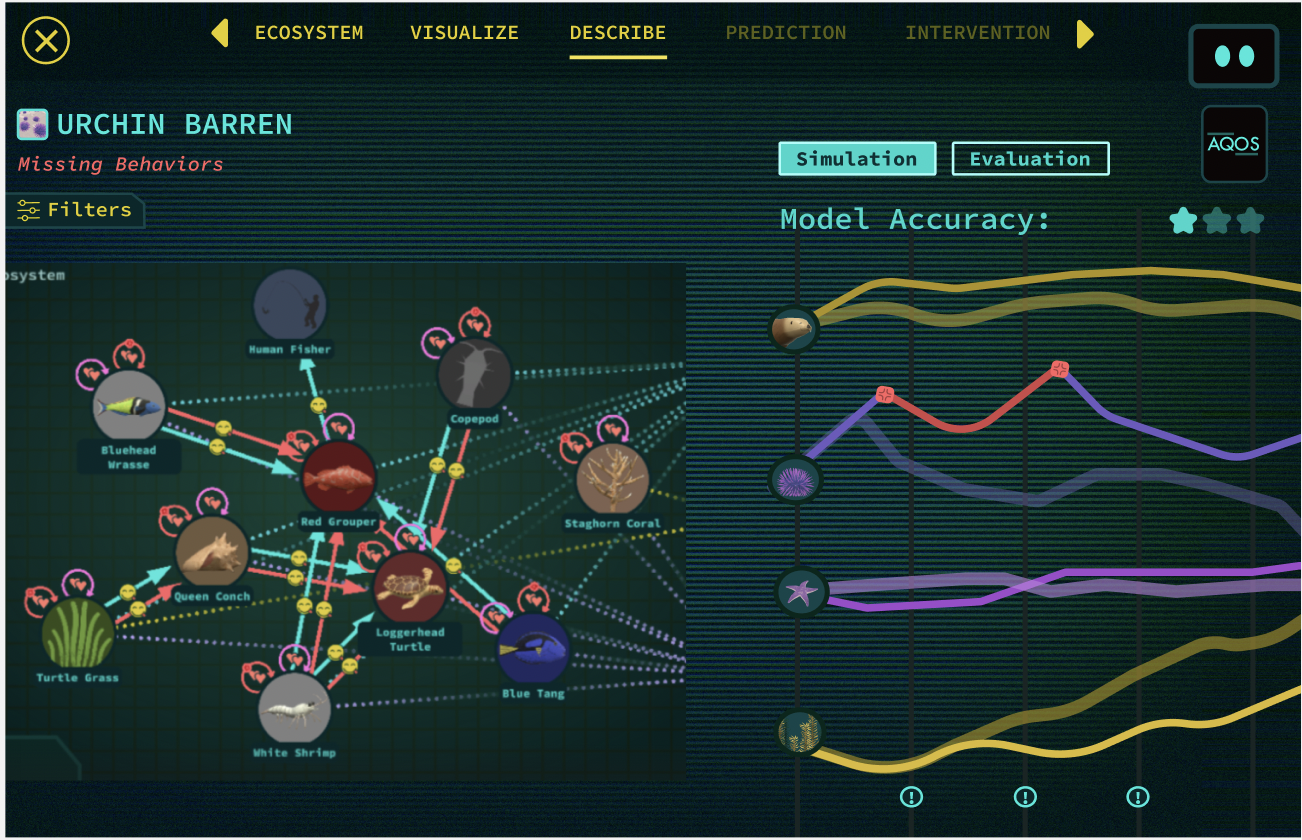Case Studies
We are building community around innovative educational data mining and iterative, participatory design to understand how people learn with games. We use our findings to build theory and design effective interventions. Learn more about research here.
Progression Visualization: Co-design of analytics tools using shared data
Shared game data can serve as a critical input to the development and testing of new research tools. In this interview with Luke Swanson and Zhaoqing (Jimmy) Teng, we explore how progression visualization can be used in learning games research, particularly when games have a non-linear structure. Using the shared gameplay data, Jimmy was able to iterate through versions of the tool, and refine the analysis and user interface. “You can select a specific action and understand, for example, how a player reached this action,” he said. This work was supported by the National Science Foundation, Grant # 2243668
Event Data Standards: Building Community
For a game to be used for learning research, data on how it is played needs to be collected. Event data is the raw information that comes out of a game as players interact with it. “If you want to do analyses from what players are doing within games, we need to make sure we've captured the raw material that downstream analytic processes can actually use,” explained Erik Harpstead, who together with Luke Swanson and Jeci Younger have been pooling their experience designing, fielding, and analyzing learning games to develop a shared schema for game event data. This work was supported by the National Science Foundation, Grant # 2243668
Data-Driven Studio Decisions
Sarah Gagnon is the director of Field Day Studio. In this role she wears many hats, including creative director, story writer, and producer of the learning games. She works across stakeholders to map out projects and manage the game design, build, and release process. “I love story telling and making art with a team,” says Sarah. “The synergy I see is how game design is key to reaching large audiences.” Only in this way will learning games be useful in testing research hypotheses about the ways students learn. To get there, the games need to be instrumented, but they also need to be great stories of interest to students, with amazing art and design, all crafted for the age of the intended player audience. This work was supported by the National Science Foundation, Grant # 2243668
Shadowspect: The Power of Sharing Games
Jenn Scianna started working with Professor YJ Kim on a project investigating how teachers understand persistence in the classroom. They used Shadowspect, a learning game designed by YJ to measure student persistence and spatial reasoning. YJ and Jenn worked with the Field Day team to create a data schema that mapped the existing event logging built into the game, and loaded Shadowspect into the Vault, a game distribution service that also enables the collection of anonymous player data. “So, even though the main research questions had been addressed in the co-design work, the game lives on,” explained Jenn. “Data are still coming in!” This work was supported by the National Science Foundation, Grant # 2243668





